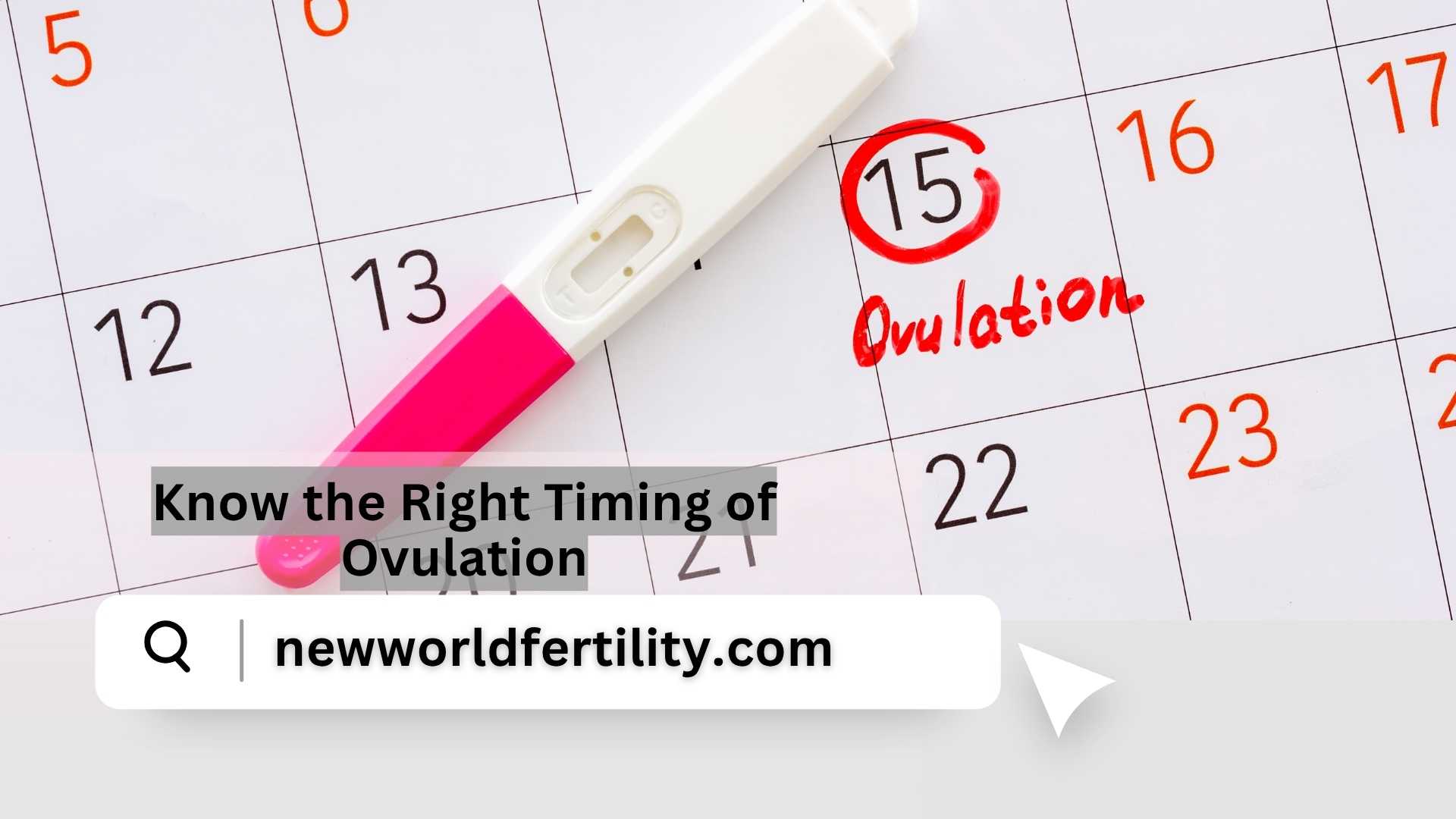Know the Right Timing of Ovulation
For couples trying to conceive, understanding the timing of ovulation is crucial. Ovulation, the release of a mature egg from the ovary, is a critical phase in the menstrual cycle. When timed correctly, ovulation can significantly increase the chances of conception. In this blog post, we'll explore the importance of knowing your ovulation timing, the methods used to track it, and how this knowledge can benefit couples seeking to start a family.
The Science Behind Ovulation
The menstrual cycle is a complex series of hormonal changes that prepare a woman's body for pregnancy. Ovulation occurs approximately halfway through the cycle, typically around day 14. During this time, a follicle in the ovary matures and releases a single egg. If the egg is fertilized by sperm, it implants in the uterine lining and begins to develop into a fetus.
Why Timing Matters
Knowing your ovulation timing is essential for several reasons:
Increased Chances of Conception: Sperm can live for up to five days in the female reproductive tract. By having intercourse around the time of ovulation, you increase the likelihood that sperm will encounter the egg and fertilize it.
Avoiding Unnecessary Stress: Tracking ovulation can help reduce stress and anxiety associated with trying to conceive. Knowing when you're most fertile can help you plan intercourse accordingly and avoid unnecessary pressure.
Natural Family Planning: If you're interested in natural family planning, understanding your ovulation timing is crucial. By avoiding intercourse during fertile periods, you can reduce the risk of pregnancy.
Monitoring Fertility: Tracking ovulation can help you monitor your fertility and identify any potential issues that may be affecting your ability to conceive.
Methods to Track Ovulation
Several methods can be used to track ovulation, including:
Basal Body Temperature (BBT): This method involves taking your temperature every morning before getting out of bed. Your BBT will typically rise slightly after ovulation.
Ovulation Predictor Kits (OPKs): These over-the-counter tests detect a surge in luteinizing hormone (LH), which occurs just before ovulation.
Cervical Mucus: The consistency of your cervical mucus changes throughout your menstrual cycle. During ovulation, your mucus becomes thin, clear, and stretchy.
Calendar Method: This method involves tracking your menstrual cycles to predict your ovulation. However, it is less accurate than other methods, especially for women with irregular cycles.
Tips for Tracking Ovulation Effectively
Consistency is Key: To get accurate results, it's important to track your ovulation consistently over several cycles.
Consider Multiple Methods: Combining multiple methods, such as BBT and OPKs, can improve accuracy.
Consult with a Healthcare Provider: If you're having difficulty tracking ovulation or are concerned about your fertility, consult with a healthcare provider for guidance.
Conclusion
Understanding your ovulation timing is a valuable tool for couples seeking to conceive. By tracking ovulation and timing intercourse accordingly, you can significantly increase your chances of pregnancy. If you're struggling to conceive, consulting with a fertility specialist can provide additional support and guidance.
Frequently Asked Questions (FAQs)
1. What is ovulation, and why is it important for conception?
Ovulation is the release of a mature egg from the ovaries, which typically occurs in the middle of a woman’s menstrual cycle. This is the most fertile time in a cycle, making it the ideal period for conception. Knowing the right timing of ovulation increases your chances of getting pregnant.
2. When does ovulation occur during the menstrual cycle?
For a typical 28-day menstrual cycle, ovulation usually happens around day 14. However, if your cycle is longer or shorter, ovulation may occur earlier or later. Tracking your cycle can help identify your personal ovulation day.
3. How long does the egg remain viable for fertilization?
After ovulation, the egg is viable for fertilization for about 12 to 24 hours. This is the most critical time to try for pregnancy.
4. What are the best days to conceive?
The most fertile window includes the five days leading up to ovulation and the day of ovulation itself. This is because sperm can survive in the female reproductive system for up to 5 days, making intercourse during this window optimal for conception.
5. What are some signs that I am ovulating?
Common signs of ovulation include:
- Mild abdominal cramping
- Clear, stretchy cervical mucus
- A slight increase in basal body temperature
- Tender breasts
- Increased libido and heightened senses (taste, smell, or vision)

 Oct-08-2025
Oct-08-2025